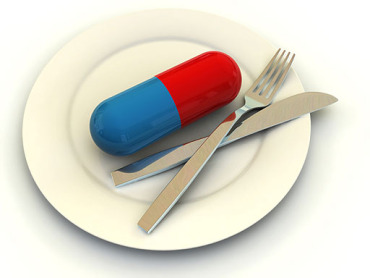Dear Davey,
I’ve seen a lot about pre-workout supplements and my nutrition store was giving out free samples. I wanted to hear what you think of them? Are they too good to be true?
From,
Dan
 Especially if you’re feeling overworked or lacking energy, it may be tempting to reach for a pre-workout supplement. Many supplement stores will have countless options promising to give your workout the edge you need.
Especially if you’re feeling overworked or lacking energy, it may be tempting to reach for a pre-workout supplement. Many supplement stores will have countless options promising to give your workout the edge you need.
The first thing to remember is that pre-workout supplements are not regulated by the FDA. In some ways, these supplements are still the wild west - and the long-term impacts have yet to be evaluated. In other words, proceed with caution.
There are a few ingredients that you’ll typically find in pre-workout supplements:
- Carbohydrate sources. We know that carbs give you energy, and that they’re an important part of any pre-workout meal. Having energy to power through your workout will help enhance your results. Of course, you need not get carbohydrates from a pre-workout supplement; a banana will do the trick.
- Caffeine. The stimulating effects of caffeine are well documented - and some exercisers believe that caffeine gives their workout an edge. While moderate caffeine consumption isn’t necessarily dangerous, keep in mind consuming caffeine before an afternoon or evening workout may impede your sleep.
- Creatine. Generally considered to be safe, creatine has been shown to increase muscle mass and add bulk. For some people, creatine has been associated with bloating and extra water weight. Regardless, anyone interested in creatine or its benefits can experiment with the supplement independently of a pre-work.
- L-arginine. Helping to dilate your blood vessels, this amino acid can improve blood flow during exercise. Unfortunately, it’s not necessarily healthy; some studies suggest that it increases oxidation stress and markers of aging.
As you can see, pre-workout supplements are an unregulated mixed bag of ingredients. For me, the risk isn’t worth the reward and I prefer a more holistic approach. If you eat a smart, balanced diet, there is little or no need for supplementation. And if you’re tired before exercise, listen to your body’s wisdom and change what’s causing your fatigue - rather than popping a pill or mixing a powder to treat the symptoms.
That’s my two cents.
Love,
Davey
P.S. If you want to transform the way you look and feel through the foods you eat, download Davey Wavey’s Insanely Easy Guide to Eating Smarter.











